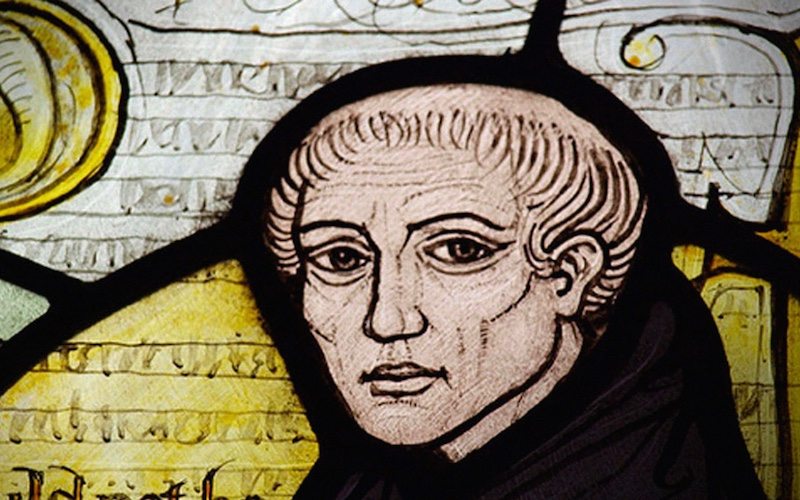Philosophy of William of Ockham
Born in England on an unsure date, William of Ockham became highly influential throughout the High Middle Ages. Living during the late 13th and first half of the 14th centuries, Ockham became a Franciscan monk at a young age and was educated in London, although he was never certified as a “Master.” He wrote, taught, and lectured on the many scholastic fields of his day, including natural philosophy (“science”), logic, and rhetoric in addition to theology. Ockham’s teachings in England were eventually tried as heresy by the Pope, and he lived the end of his life in banishment in Munich. During this time his writings are more political than theological.
William of Ockham may be best known for his maxim, commonly called “Ockham’s razor.” It is also known as the Law of Parsimony or the Law of Economy. The principle is a method of problem solving in which Ockham states that among different hypotheses that all seem equal and provide reasonable solutions, a person should choose the hypothesis that makes the fewest assumptions. This is sometimes summarized as “Pluralities should not be posited without necessity” or “All things being equal, the simplest theory tends to be true.”
In addition to his commentaries on Aristotle and Peter Lombard’s Sentences, William of Ockham is most known for his major work, Summa Logicae. In this treatise, the “Sum of Logic,” Ockham spends more than 100 chapters in three books organizing the previous works on logic, defining terms important to the discussion of logic, and differentiating contexts for use of inductive and deductive reasoning. Ockham wrote about how universal concepts were psychologically based, which he later expanded to include theories about the system inherent in the human mind at birth.
Expand your knowledge universe in just 5 minutes a day via bite-sized email courses.
Share with friends:

